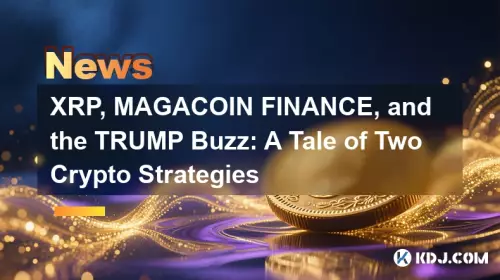As Bitcoin enters bull markets, skepticism fueled by fear, uncertainty, and doubt—commonly known as FUD—tends to resurface. Critics persistently voice concerns

As Bitcoin experiences bull markets, skepticism fueled by fear, uncertainty, and doubt (FUD) tends to resurface. Critics persistently voice concerns regarding Bitcoin's volatility, sustainability, and potential use in illicit activities. Despite being integrated into mainstream financial systems and gaining acceptance from institutional investors and politicians, criticism of Bitcoin remains, often focusing on its intrinsic value, energy consumption, and societal benefits.
One prevalent argument against Bitcoin is its perceived lack of intrinsic value. Notable figures such as the late Charlie Munger and Warren Buffett have famously criticized Bitcoin, describing it as fundamentally worthless. They argue that since Bitcoin does not generate earnings or dividends, it lacks intrinsic value. Yet, Bitcoin’s scarcity and its characterization as “digital gold” continue to support its role as a valuable asset.
Some detractors liken Bitcoin to historical financial bubbles, comparing it to phenomena like the dot-com crash or the Dutch tulip mania. However, proponents argue that Bitcoin, unlike those bubbles, provides a robust digital store of value. Though initially critical, industry voices like JPMorgan’s Jamie Dimon have softened their stances over time. The bank has even shown interest in Bitcoin-related investments, such as spot Bitcoin ETFs and its own digital currency initiatives.
Bitcoin’s role in illegal activities often draws ire, particularly from figures like US Senator Elizabeth Warren, who has labeled it as a potential tool for money laundering. Nonetheless, Bitcoin transactions are recorded on a transparent blockchain, making illicit activities easier to track than those conducted with cash. Tools designed to obscure Bitcoin transactions have emerged, but the transparency of blockchain technology continues to be a double-edged sword for illegal use.
The significant energy consumption of Bitcoin, attributed to its proof-of-work mechanism, is another point of criticism. As Bitcoin mining has grown, so has its energy footprint, which in some comparisons surpasses the electricity consumption of entire nations like Egypt. Nevertheless, the sector is increasingly turning to renewable energy sources, driven by the search for cheaper, sustainable alternatives.
Technological advancements in quantum computing occasionally spur fears about potential threats to Bitcoin’s security. Some assert that breakthroughs in quantum computing could allow decryption of Bitcoin's security, but experts maintain that such advancements would target broader financial systems well before reaching Bitcoin. Adjustments to the Bitcoin protocol could also mitigate potential threats.
The stability and transparency of Tether, a prominent stablecoin, represent another concern within the Bitcoin sphere. Accusations suggest that Tether has lacked proper backing and transparency, raising fears of market manipulation. While these concerns reverberate through the crypto market, some argue Bitcoin remains resilient, potentially more vulnerable to perceptions of instability than any actual market shifts.
Although skeptics continually challenge Bitcoin's legitimacy, highlighting its perceived flaws, the digital currency perseveres, driven by ongoing institutional adoption, technological innovation, and a shift toward renewable energy in mining practices. As these debates rage on, Bitcoin continues adapting to a dynamic financial landscape while addressing its critics' concerns.












































































